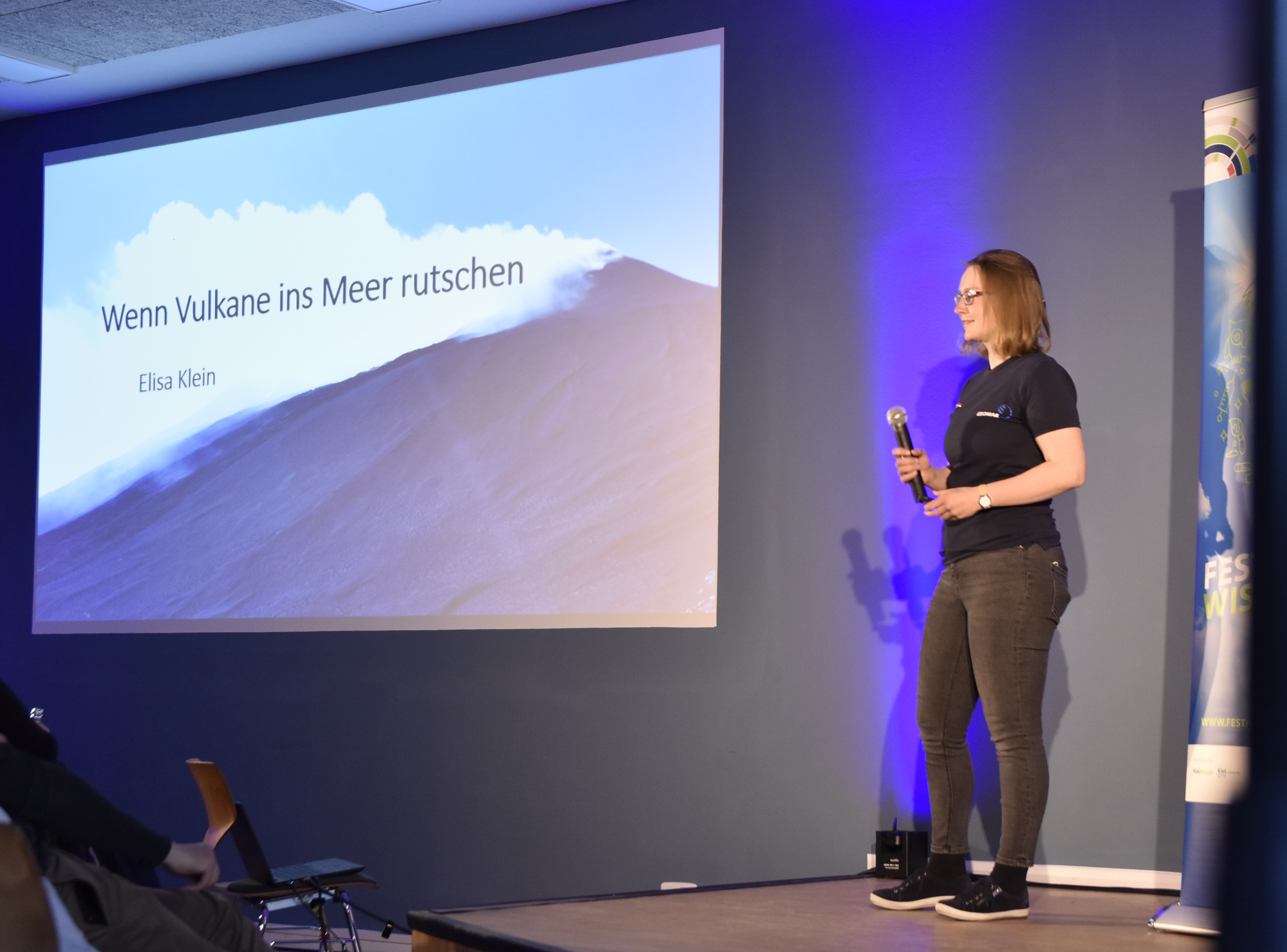November 2023, I am standing on the big stage in “die Pumpe” an event centre in Kiel. In front of me, there are about 200-250 people, the seats are all occupied and a bunch of people are standing. They are willing to stand for two hours to experience young scientists explaining their research in an entertaining way during our Science Show. The light is blinding me, so I can barely see the people in the front row. But I can hear them. It is a very engaged audience. They laugh at jokes and they answer questions. The presenters are nervous and excited, but all goes well. And me? I am not actually presenting. I am Co-hosting the show. And oh, boy! It is so much fun. I only have a rough idea what I am going to say, but I feel well prepared. I am barely nervous. How come? I guess, you could consider me a veteran of the Science Show by now. Been there, done that! But maybe, let’s start at the beginning.
I started my PhD in 2021, mostly working from home for the first few months. I talked about my struggles during my first year in one of our first blogs, but in summary it was frustrating and challenging and at some point I lost sight of why I wanted to do science. That is when I heard of the science communication certificate program offered by the graduate centre and centre for key qualifications of the University in Kiel. I was lucky enough to have supervisors, who were supporting my interest, so I signed up and enrolled in a bunch of courses. I learned the basics in the introductory course, how to create scicom videos for Youtube (including learning about film and sound production and some animation options) and the various formats of popular science writing. And last, but not least, I got personalized training and preparation for my first talk at a Science Show event. Ulf and Katharine, aka. Mr Science and Mrs Show, are great coaches. You’re too nervous to stand? Why not present sitting in a chair, as if reading from a book? Your slides need a little upgrade? They are full of ideas and little details you haven’t thought of! Your voice is a bit monotone? They will help you to convey “more drama, baby!”
I did three or four shows, where I gave my talks “When volcanos slide into the sea…” (see also this blog) and “Only the tip of the volcanic island!“. I did not only learn to be more confident when presenting. Presenting my research in a way that was both informative, understandable to a broad audience and entertaining made me understand the essence of my research. It reminded me of why this is relevant and that people are actually interested in the results of what I am doing. And, perhaps most importantly, this helped me to re-discover my motivation of why I had chosen to stay in science after my Master’s. To learn and then teach others about what I learned.
The certificate program does not only include courses and the Science Show. To complete the certificate you need a total of 144 hours of courses and scicom projects as well as one activity that is your “masterpiece”. As you know if you are reading this blog from time to time, my biggest project is my work as an author and editor on this platform. But I have written other blogs on research cruises, an article for the university newspaper, and was part of several other smaller multimedia projects. Whatever you are interested in, the certificate program organizers will find a way to make it work for you. Are you interested to join the sci-com program? Find out more about it here, and the science show here.
Elisa Klein
Find me here:
Pre-Collapse Website
Research Gate
Instagram: @scientific_elli
